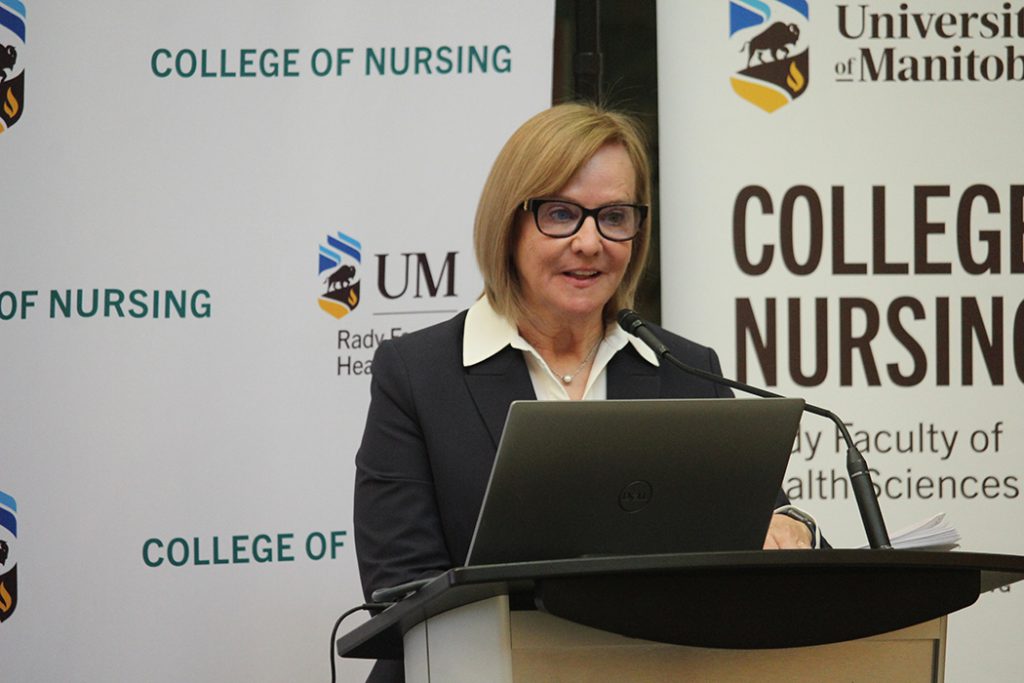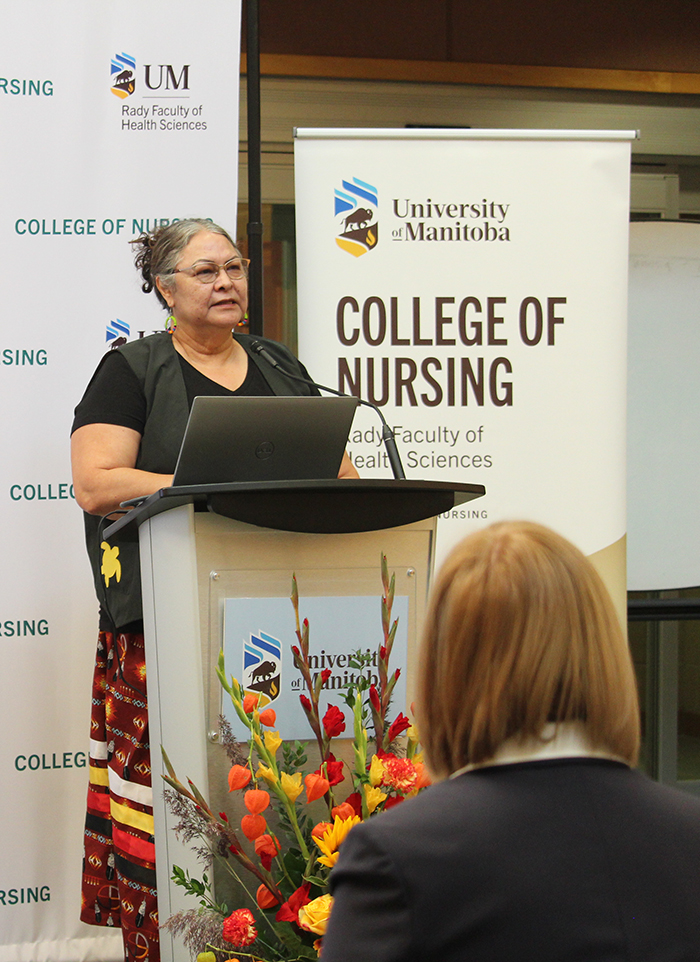
The College of Nursing hosted its annual Margaret Elder Hart speaker series event on Oct. 3 at the Helen Glass Centre for Nursing, featuring distinguished visitor Dr. Barbara Astle, a recognized as a leader in global health education and founding member for Women in Global Health in Canada.
The day opened with greetings by Brenda Longclaws, Knowledge Keeper, who spoke about Indigenous connections to the Earth. Astle presented her keynote address, titled Sustainability & the Planetary Health Crisis: Promising Solutions for Moving Forward, in the centre’s atrium, attended by faculty, students and staff, both in-person and virtually. A panel discussion followed and later that afternoon, Astle met with students at a luncheon.

In her address, Astle spoke about her role in planetary health, the role of nurses and other health-care professionals in creating an educational framework around planetary health, and her research on people with albinism and how environmental changes affect them.
“The health and wellbeing of humanity is directly impacted by the natural systems that we depend on. In the past several years, we have seen the devastating effects,” she said. “This has led us to what is called the ‘triple planetary threat’ by the United Nations – biodiversity loss, pollution, and climate change.”
Other members of the panel discussion included Lynda Trono, climate activist, and Dr. Shirley Thompson, associate professor at UM’s Natural Resources Institute. One of the topics discussed was including planetary health in the nursing curriculum, which created discussion on working in community, taking incremental steps, and threading planetary health throughout the curriculum.
“We are in a great transition marked by a social movement that situates us in a context of collaboration and innovation,” Astle said.
Dr. Sonia Udod, associate professor and chair of the event, said the college faculty was curious to learn more about the link between the health of humans and the health of the planet.
“Many of us grew up on the prairies and the University of Manitoba is situated on the prairies where we are closely linked with the land and grow gardens, crops, and care for animals. Climate change and air pollution interact with economic and social conditions, and influence our access to health services, especially for the marginalized or disadvantaged populations,” she said.
“As health-care providers, we have a responsibility to safeguard the human health and wellbeing of all our citizens.”
The speaker series is named after Margaret Elder Hart, a pioneer in nursing education and the director of the UM School of Nursing from 1948 to her retirement in 1972. This year’s event began with a video tribute honouring Hart.
